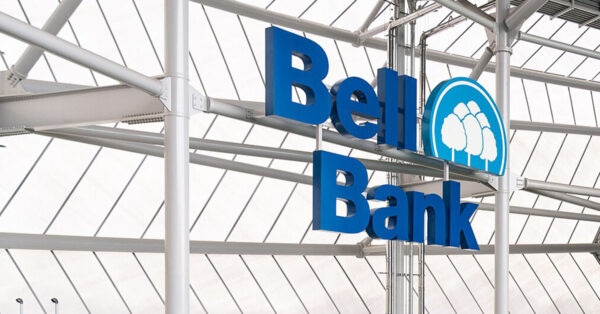With no physical branches, the nation’s largest all-digital bank is an on-the-ground presence in the community.
It used to be that if you wrote a check for more money than your account could cover, it would bounce and you’d resolve the awkward matter with the payee. Then, in the 1990s, banks began paying overdrawn checks but charging a fee as a putative benefit to customers.
In reality, overdraft fees generated huge profits—one bank CEO is said to have christened his yacht Overdraft—while disproportionately affecting low-income Black and Latino customers, according to the Center for Responsible Lending. Indeed, a Pew Charitable Trust study found that overdraft fees often served to push financially vulnerable customers out of the banking system altogether.
Chastened by consumer backlash and regulatory wrist-slaps, banks began offering grace periods, short-term loans and other accommodations that let overdrawn customers climb back into the black—at a price. But only one bank eliminated overdraft fees outright. In 2021, Ally Financial, the nation’s largest digital-only bank, said “enough,” and abolished its $25 overdraft fee, with no conditions or restrictions. Soon, other banks followed suit.
“Overdraft fees can be a major cause of anxiety,” says Diane Morais, Ally’s consumer and commercial banking president. “It became clear to us that the best way to relieve that anxiety was to eliminate those fees.” Adds CEO Jeffrey Brown, “Overdraft fees are a pain point for many consumers, but are particularly onerous for some.”
If any bank was going to take the lead in ending one of the industry’s more inequitable practices, it was Ally. The company’s disarmingly simple mission, “Do It Right,” defines a brand promise to treat customers, employees and the communities where it does business with fairness and integrity. More than half of Ally’s executive council members are women or people of color, as are 42% of its board members. In 2022, Ally was listed as one of the Best Places to Work for Disability Inclusion by the Disability Equality Index. And its benefits package goes beyond the basic, including fertility support, adoption and surrogacy assistance and insurance coverage for gender affirmation services.
Even in its media spending, Ally has been out in front. In 2022, the company made an unprecedented pledge to achieve parity in its ad spending between men’s and women’s sports within five years. To date, the company has increased its investment in women’s sports advertising by more than 300%.
“Supporting economic mobility for all isn’t about throwing dollars at the problem,” notes the company’s website. “It’s about connecting, collaborating and working within the community. Providing greater access to financial education and resources not only enriches people’s lives, it helps empower them to improve their economic circumstances.”
Ally’s financial education initiatives include Planet Zeee and the Money Tree, a children’s book that has been used by employee volunteers and community partners to help more than 50,000 kids and families learn smart money habits. Since 2011, the company’s Wallet Wise program has offered free courses and live events to help more than 110,000 people learn the financial basics, from budgeting to auto financing. And its “Moguls in the Making” program gives students from Historically Black Colleges and Universities (HBCUs) an opportunity to showcase their business savvy through the development of business plans focused on advancing economic mobility.
When Ally did away with overdraft fees two years ago, it tied its rationale explicitly to its mission: “Because it’s the right thing to do.” In Ally Financial, Carpenter Group sees a company living its brand, inside and out—within the confines of the organization and in the greater world.




